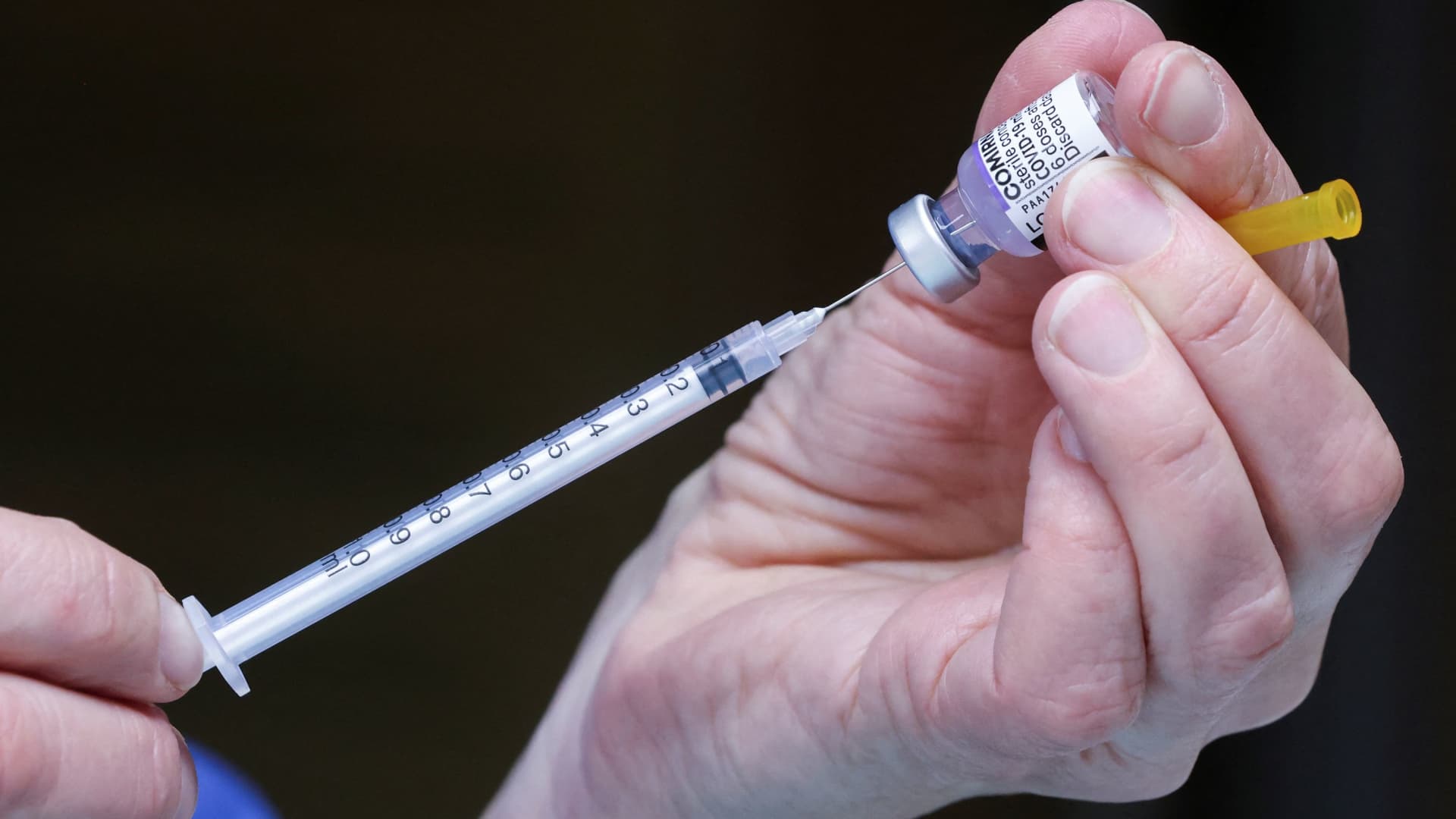
The Food and Drug Administration authorized Covid booster shots that target the omicron BA.5 subvariant as the U.S. prepares for another surge of infections this fall and winter.
It is the first time the FDA has authorized an updated vaccine formula since the original shots rolled out in Dec. 2020. Pharmacies are expected to start administering the new boosters after Labor Day weekend.
The U.S. has secured 171 million doses of Pfizer’s and Moderna’s updated shots so far, according to the Health and Human Services Department.
Pfizer’s new booster dose is authorized for people ages 12 and older, while Moderna’s new shots are authorized for adults ages 18 and older. The eligible age groups can receive the boosters two months after completing their primary series or their most recent booster with the old shots.
The Centers for Disease Control and Prevention has to sign off on the boosters before pharmacies can give them to patients. The CDC’s independent advisory committee is scheduled to meet on Thursday and Friday to review the data and issue its recommendations for health-care providers.
Public health officials believe the redesigned boosters will provide more durable protection against the virus and reduce hospitalizations this fall and winter. The new boosters target both the original strain that emerged in China more than two years ago, which scientists refer to as the “wild type,” and omicron BA.4 and BA.5 which are now the dominant variants in the U.S.
Shots that target two different strains are called bivalent vaccines.
The vaccine makers developed the original shots against the strain of Covid that first emerged in Wuhan, China in 2019. But the virus has mutated dramatically since then. Omicron and its subvariants have drifted so much from the original Covid strain that the virus is able to slip past the protective antibodies induced by the vaccines.
As a consequence, the shots’ effectiveness at preventing infection and mild illness has declined substantially as the virus has evolved. Though the vaccines are still generally preventing severe disease, the protection they provide against hospitalization has slipped over time as well.
“There is declining effectiveness against hospitalization and severe illness. The problem has been persuading the American people to get boosted on a regular basis,” said Dr. Peter Hotez, an infectious disease expert at Baylor College of Medicine in Texas. Hotez led a team that developed a Covid vaccine based on protein technology that is authorized in India.
About 76% of people ages 12 and older have received their first two vaccine doses in the U.S., according to CDC data. About 50% of those individuals have received their first booster dose.
For adults ages 18 and older, three doses of Pfizer’s or Moderna’s original vaccines were 55% effective at preventing hospitalization from the omicron BA.2 subvariant four months after the third shot, according to CDC data.
Three shots were 19% effective at preventing infection from omicron five months after the third shot, according to CDC data from Aug. 2021 through May 2022. The rapidly spreading BA.4 and BA.5 subvariants have since driven omicron BA.2 out of circulation.
The Biden administration moved rapidly over the summer to get updated shots ready for the fall. Public health officials are worried that the U.S. is on the verge of another wave of infection as more transmissible omicron variants spread, immunity from the original vaccines wears off and people head indoors to escape colder weather.
But U.S. health officials and the vaccine makers have struggled to keep up with the rapid evolution of the virus.
Pfizer and Moderna were originally developing boosters to target omicron BA.1, the variant that caused the massive wave of infection last winter. But the FDA told the vaccine makers in late June to switch gears and target BA.4 and BA.5 instead as those variants quickly gained ground. The sudden change in plans left little time for clinical trials in humans before a fall rollout.
#Coronavirus, #PublicHealth, #Vaccines
Published on The Perfect Enemy at https://bit.ly/3pZVO5I.
Comments
Post a Comment
Comments are moderated.